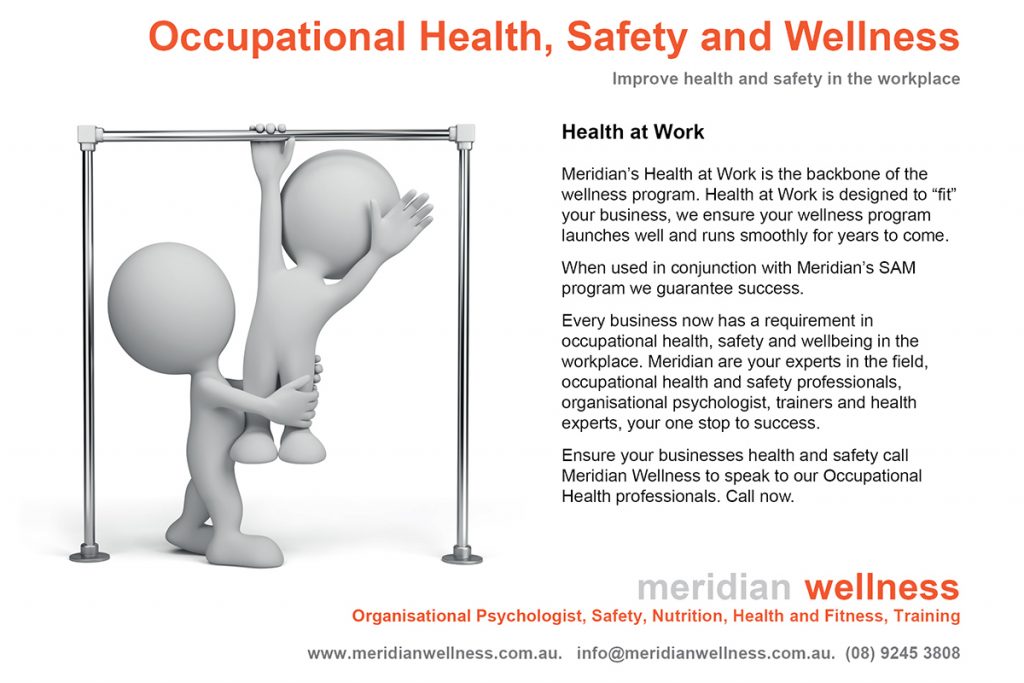With many people often eating more than their lunch on the job, workplace nutrition is important, not just for physical health but also workplace wellbeing. We take a look at why employers should encourage – or even provide – healthy food and snacks at work.

Why healthy workplace eating matters
Food supports our body and brain function. With a balanced diet we can lead a more balanced life. With most of us spending a third of our lives at work it is very important to be pro-active in eating healthily at the workplace. Our employers have a duty of care towards us and should provide us with healthy foods. The main aspects of a healthy diet we should concern ourselves with, and ensure our employers are focussing on are; preparation, quality and nutritional value.
Unhealthy workers require more medical care, take more sick days and are less productive on the job.
Healthy eating along with living an active and positive life can lead to:
- reduced risk of some cancers and heart disease
- increased energy and an elevated mood with improved self-esteem
- reduced anxiety and stress
- the opportunity to spend more time with friends and family.
Influencing how people eat at work
The workplace will influence not just what people eat, but the way in which they eat meals and snacks. Always remember that the workplace environment influences the health of its employees. It is important to look at what is offered to the employees at vending machines and workplace cafeterias. The workplace should provide refrigerators and microwaves so that meals can be stored and prepared safely and appropriately.
Research was conducted within a work environment to investigate the means and methods we consume foods. It included the convenience of the food and its accessibility – whether easy or difficult to obtain.
Secretaries were chosen to carry out one aspect of the research. Over a week the secretaries had a bowl of chocolate placed near their workstation. The bowl was filled each night to be full when they arrived at work the next day. Over a three week period, the bowl was moved. The first week it was placed 3 metres away from their normal work position. Week two it was placed in their top draw. Week three it was placed within reach from sitting position, but behind a vase of flowers.
Week one they consumed 9 chocolates each day on average, week two 4 and week three 6. Temptation was increased when the bowl was in full sight.
Healthy foods for the workplace
Within workplace wellness programs, there has been much emphasis on screening and education to encourage individual employee behavior, and better health at work.
Today there is mounting evidence that lasting behavior change is best achieved when education is joined together within a workplace which supports healthy choices. Workplace snack trolleys, cafeterias, and other food service options are the key to creating healthy food environments at work. Healthy vending offerings can also have a substantial impact.
Not only do the majority of workplaces have vending machines, however recent studies have shown that:
- People are more likely to buy food from vending machines if the selections are healthier
- Reducing the price of low-fat items in vending machines is associated with increased sales of those items.
Encouraging healthier workplace eating
Employers can support healthier eating in many ways:
- cafeteria foods – offer fairly priced healthy options
- vending machines – offer healthy foods in all vending machines
- snacks at meetings – offer fruits, vegetables and water rather than sugary snacks
- sweet jars – encourage a fruit basket instead.
Types of food provided by the employer should include:
- a wide choice of fruit and vegetables
- breads, rice, pasta or potatoes
- fish and chicken
- include a variety of vegetarian options with recipes including quorn, lentils, peas, beans, or eggs
- use low fat and low sugar products when available, and provide healthier low fat spreads & yoghurts.
The employer should also remove salt from the table, and reduce the amount of salt in all cooking. Also, when cooking, the workplace cafeteria should only use oils and sugar lightly. When using a catering firm, the employer can question the ingredients or set standards.
Displaying and promoting food should help promote heathy foods. Try these:
- ensure salad bars, fresh fruit and a selection of breads are prominent in the serving area
- make baked potatoes more visible than chips for example
- offer salad dressings separately
- ensure healthier options are not more expensive.
 Encouraging healthy snacking
Encouraging healthy snacking
Be prepared, having a large pack of mixed nuts and seeds available is great way to satisfy the hunger cravings, and knowing you are consuming a nutritious food will ease the tension. Nuts and seeds are available in most shopping / grocery outlets.
They are low cost high nutritional value. Nuts and seed blends can have protein and fibre, also contain fats that help many of the body’s ability to store energy. Work pressures can lead to feelings of stress.
With many offices having a vending machine it is easy to get a sugary snack. Although this can be nice for about five minutes after consuming, once the sugar hit drops, so will your mood.
Foods help us at work
Some foods will promote health and others will give satisfaction in other ways. Eating a nutritionally balanced diet at work can help lower blood pressure and add to energy levels and concentration. Food is a major source of physical and mental wellbeing. The correct foods can be calming, help to focus our minds and be energising.
Good nutrition can give the feeling that we are working at our optimal level, feeling happy, energetic and aware. In the work environment we are looking to be engaged in the job, the work may require bursts of concentration and require you to stick to a task whilst having a level of productivity.
Thus, you will achieve short and long term work goals, your expectations will be aligned with the business, and outcomes overall will be very satisfying for both employer and employee.

